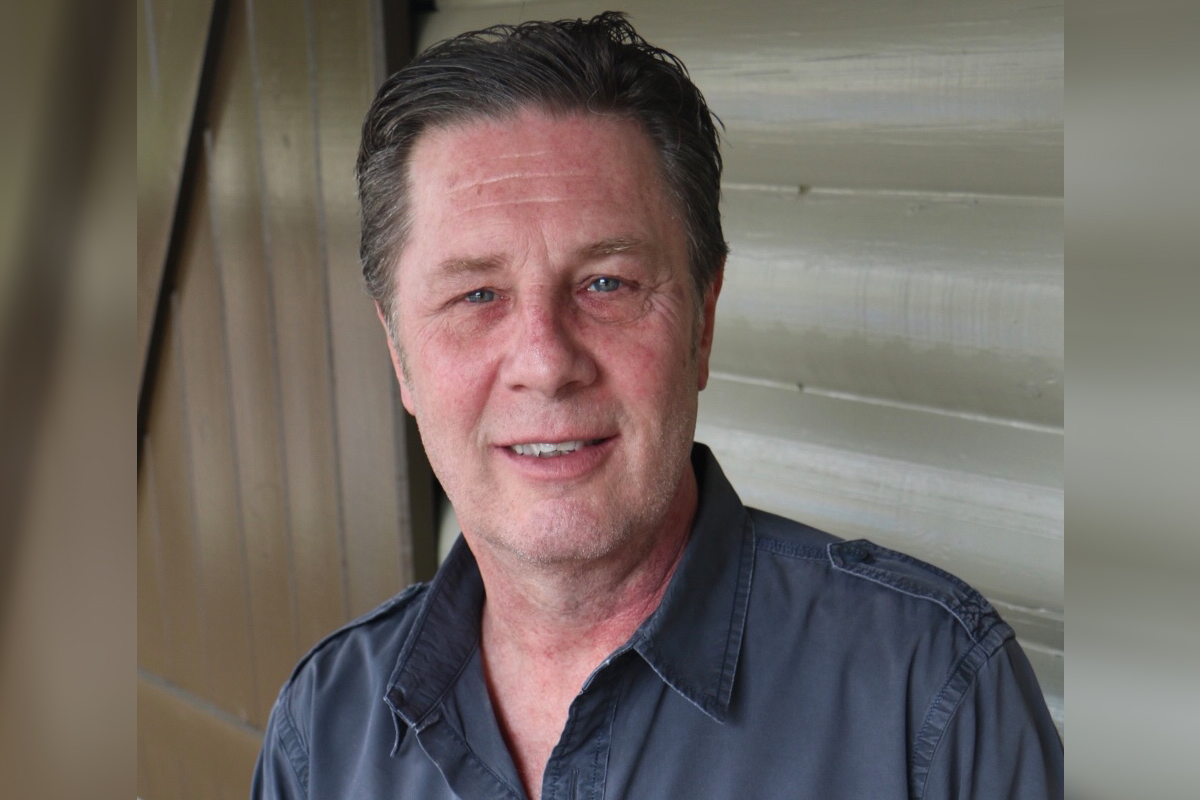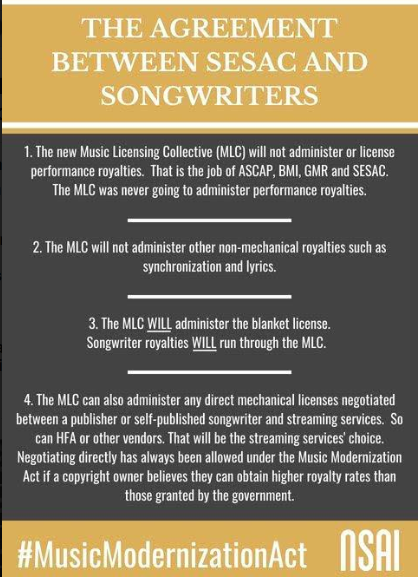

Bart Herbison
MusicRow spoke with NSAI’s Executive Director Bart Herbison on Friday, Aug. 3, to discuss the compromise to the MMA and how the industry is moving forward in support of the proposed legislation.
As previously reported on Thursday, Aug. 2, The National Music Publishers’ Association (NMPA), the Nashville Songwriters Association International (NSAI), the Songwriters of North America (SONA), and SESAC announced unconditional support for the Music Modernization Act (MMA). All parties endorsed a provision to the proposed legislation to amend the Mechanical Licensing Collective’s (MLC) administration of voluntary licenses outside the scope of the Section 115 compulsory license in order to ensure private vendors can continue to participate in the open market.
This amended provision in the agreement states the MLC will administer songwriter royalties on blanket mechanical licenses. For any direct mechanical licenses, those negotiated between a publisher or self-published songwriter and streaming services, the streaming service will select the administrator of those copyrights. These admin functions can be provided by the MLC, as well as other vendors such as the Harry Fox Agency, owned by SESAC’s parent company, Blackstone. This provision allows competition and free market to continue as part of the agreement. For other non-mechanical royalties such as synchronization and lyrics, the MLC will not administer those licenses.
Performance royalties will continue to be administered and licensed by the Performing Rights Organizations such as ASCAP, BMI, GMR and SESAC.
MusicRow: The announcement on Thursday (Aug. 2) that all parties are now fully on board was great for the industry. What are your thoughts in light of the announcement?
Bart Herbison: First I’m glad we are passed a family disagreement. Family disagreements are the hardest, because you love your family, and we love SESAC. Nothing has changed. SESAC is very important in our ecosystem and we need to already be passed this.
An overarching way to say it is that things beyond Section 115 of the license, we are not going to get involved in, and for the most part we never were. We always wanted to preserve the right for music publisher or self-published songwriter to make a direct deal with the services if they thought they could get a higher rate than the government. Under those circumstances, this clears the ability for anybody that the streaming services choose to administer those deals. I think that is also in the spirit of the bill. That preserves business for whoever can do the best job.
MR: What have those conversations within the industry been like since the agreement was announced on Thursday?
Since we’ve reached an agreement, I made it a point to reach out to SESAC songwriters yesterday, especially those that were vocal, to make sure they understood this and to make sure they understood that SESAC had a job to do, and that we have a job to do. All of the writers were grateful we had those conversations. I reached out to others who had been particularly vocal that we’ve moved on.
There had been differences in the direction of this bill for a few years. That includes songwriter groups, music publishers, other groups, performing rights societies, the record labels, before we ever got to the streaming companies and broadcasters and everybody else. There were differences philosophically as to where this bill should go. Unfortunately, this one became public. The rest of those did not.
NSAI has been criticized, not by SESAC, but by others for making compromises. Legislation is the art of compromise. As difficult as this has been, I don’t think there has been a greater art of compromise. At the end of the day, songwriters prevailed in most of those areas, and that’s what is important because our whole industry has suffered in the digital era, but nobody like the songwriters. So now there is a path forward to give us tools to change that with this bill.
MR: What hurdles are left going forward and what is the timeline for the Senate vote?
There are some issues left, and they are surmountable, definitely. There’s been progress made on all of those areas. I don’t see anything, personally, that prevents a vote on this during this session of Congress and passage.
Because there were changes already made in the Senate during their markup that the Senate Judiciary committee had, the House has to sign off on it one more time. The House is out until Labor Day. They come back briefly, then they take another week’s break, so my guess is you’ve got a window sometime between mid- to late-September until the November elections.
Congress’ two-year cycle ends this year. Next year there will be a new Congress, and we would procedurally have to start all over again.
MR: There has also been confusion regarding how songwriters will be part of the MLC board. Can you talk about the makeup of the MLC board?
There will be four songwriters with statutory seats on the Board. Those are self-published songwriters, and NSAI as well as other groups is already working on that process. Songwriters will pick the songwriters, period. Once the MLC’s up and going, we have to make sure that becomes a rule of the MLC and that will be the first motion I make sure songwriters bring, is that songwriters pick the songwriters.
There are 14 seats on the board, so 10 other seats will be publishing seats. I am confident that some of those will also be songwriters who are publishers. Look at this town, the hottest publishers in Nashville are either wholly-owned or joint venture companies owned by songwriters. I am confident that this will be a fair process. But we have to pass a bill before we select a board.
MR: What other misconceptions have there been about this legislation?
There has been a lot of misinformation about the big music publishers and complete lies about black box payments.
One of our finest hours at NSAI is that the unclaimed monies is based on your number of streams. Yes, publishers will get payments based on the streaming activities the writers they have earned during that period of time. If a songwriter owes the publisher, that will be recouped, and then they will get their money. This will be the first time that unpublished songwriters who are not members of NMPA will also get an equal share of these funds based on their streaming activities.
All along from the outset of this, there are two very important words: money and control for songwriters, so at different points in this legislative process, we’ve had to work through preserving that. And this agreement absolutely does that, it preserves the money going through the MLC, that songwriters control. Their money, they control…unless somebody chooses to do it in a marketplace.


Category: Exclusive, Featured, Financial/Legal, Publishing
About the Author
Jessica Nicholson serves as the Managing Editor for MusicRow magazine. Her previous music journalism experience includes work with Country Weekly magazine and Contemporary Christian Music (CCM) magazine. She holds a BBA degree in Music Business and Marketing from Belmont University. She welcomes your feedback at jnicholson@musicrow.com.View Author Profile


